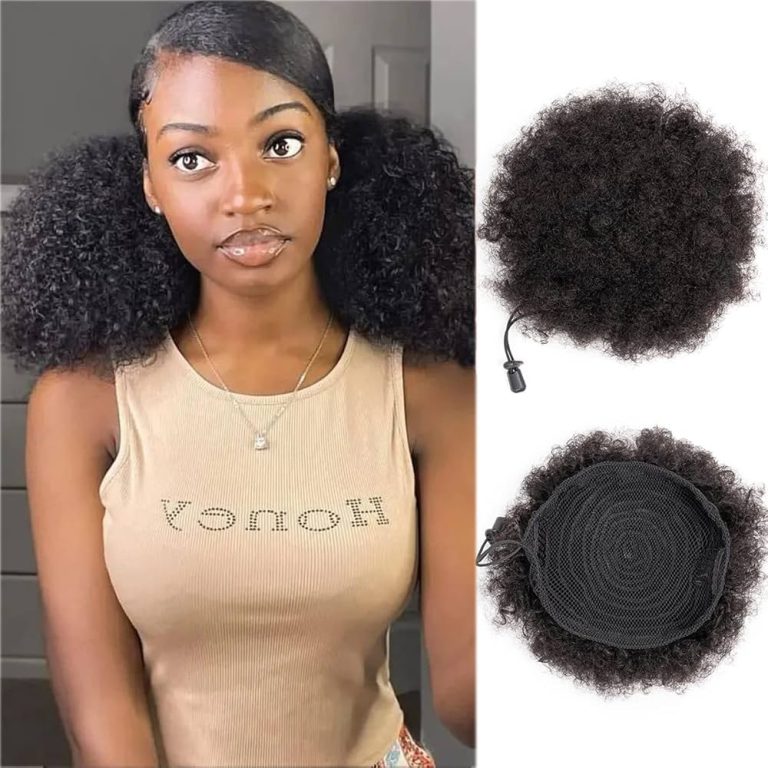
Curly Hair Wash Frequency: Guidelines for Ideal Care
The Fundamentals of Curly Hair Care
Understanding the nuances of curly hair care is key for healthy, bouncy curls. Whether you have loose waves or tight coils, knowing how to treat your curls can make a huge difference. The goal is to strike a balance between cleansing the scalp and locking in moisture. How often should curly hair be washed?This section explores the basic principles of maintaining curly hair, focusing on texture and natural oils.
The Role of Hair Texture in Wash Frequency
Your hair’s texture greatly influences how often you should wash it. Fine or wavy curls may need a more frequent wash schedule than thicker, coarser curls. Thinner hair types allow sebum to spread more easily, potentially leading to a quicker look of oiliness. On the other hand, thick curls retain natural oils longer and might not require as frequent washing.
Understanding Curl Dryness and Sebum
Curly hair typically experiences more dryness than straight hair. This is because sebum, the natural oil produced by the scalp, has a harder time coating each twist and turn of a curly strand. As a result, this natural moisturizer takes longer to travel down the hair shaft, leading to drier ends. Washing too often can strip away these essential oils, leaving curls even more parched.

Establishing Your Curly Hair Wash Routine
Navigating the frequency of your hair wash routine is a cornerstone of curly hair care. How often should curly hair be washed? It’s not only about cleanliness but also about maintaining the integrity and moisture of your curls. Let’s dive into creating a curly hair wash routine that considers both these aspects.
Recommended Washing Frequency for Curls
Curly hair experts generally suggest washing your hair 1-3 times per week. Thicker curls may benefit from washing less often, possibly every 10-14 days. While it might seem counterintuitive, washing less frequently allows the natural oils to nourish your hair for longer, resulting in healthier curls. Using the right products tailored for curly hair is essential in this reduced washing schedule.
Balancing Scalp Health with Curl Moisture
The health of your scalp is just as important as the moisture in your curls. It’s about striking a balance. A clean scalp avoids build-up and irritation, but over-washing can lead to dry, brittle strands. Co-washing, which is using a conditioner to wash your hair, can be a gentle alternative to shampoos. It cleanses the scalp while preserving hair moisture, particularly suitable for coarse or very dry curls. Remember, a happy scalp means happy curls!
The Impact of Over-Washing on Curly Hair
Curly hair needs careful balancing when it comes to washing. Over-washing can strip away sebum, the scalp’s natural oil that moisturizes and protects hair. How often should curly hair be washed?Because curly hair has twists and turns, it’s harder for sebum to travel down each strand. Washing too frequently can leave curls dry and frizzy. It may also lead to increased breakage. Not all curls are the same, so listen to your hair. Adjust your wash routine to match your hair’s needs, keeping in mind that less can be more.
The Effects of Stripping Sebum
Curly hair is especially sensitive to over-washing because of how it affects sebum. Without this protective oil, hair loses moisture quickly. This dryness can make curls look dull and feel brittle. Too little sebum leads to poor curl definition and increased frizz. Remember, sebum is your friend. Washing too often can turn it into a rare visitor on your scalp and hair.
Addressing Myths Around Curl Washing
Many believe more washing equals cleaner, healthier hair. This isn’t true for curls. Washing curly hair daily is a common myth that can actually harm your curls. Another myth is that not washing will train hair to be less greasy. Your scalp’s oil production is more about biology than training. Find a balance that keeps your hair healthy without believing every myth.

Recommended Curly Hair Products for Washing
Finding the right products is vital for maintaining healthy curls. Sulfate-Free and co-washing options have unique benefits.
Sulfate-Free Options for Curls
These shampoos clean without harsh chemicals. This reduces dryness and preserves hair moisture. Look for labels that say ‘sulfate-free’ and check for nourishing ingredients. Hydrating elements like aloe vera, glycerin, and oils are good for curls. Use these shampoos according to your hair needs. They can make a big difference in curl health and shine.
Co-washing and its Benefits for Thicker Curls
Co-washing means washing hair with conditioner only. It’s a great choice for thick or very dry curls. This method cleans gently and adds extra moisture. Co-washes often contain mild surfactants to cleanse the scalp. They also have rich conditioners to hydrate hair. For very thick or coarse curls, co-washing can extend time between full washes. This helps curls stay moisturized longer. Remember, less stripping means happier, bouncier curls over time.
Techniques for Refreshing Curls Between Washes
Refreshing curls between washes can help keep your hair looking great. How often should curly hair be washed? It’s a simple way to revive your hairstyle without a full wash. Below are tips on how to breathe new life into next-day curls and keep frizz at bay.
How to Revive Next-Day Curls
For next-day curls, water and styling products are key. Try these steps:
- Spritz water lightly on your hair to dampen, not soak, your curls.
- Apply a bit of your favorite styling product to help define the curls.
- Gently scrunch your hair to encourage the curl pattern.
- Use a diffuser or let your hair air-dry.
A quick refresh routine takes minutes but makes a big difference.
Tips for Reducing Frizz and Maintaining Moisture
To reduce frizz and lock in moisture:
- Apply a small amount of leave-in conditioner or curl cream to damp hair.
- Don’t touch your curls too much once they’re styled.
- Sleep on a satin or silk pillowcase to reduce friction.
- Consider using a lightweight oil to smooth ends and add shine.
These simple tricks help maintain beautiful curls between wash days.

The Transition to Less Frequent Washing
Transitioning to a less frequent hair washing routine can be beneficial for curly hair. The process involves gradually extending the time between washes, allowing the scalp to adjust and maintain its natural oil balance. It’s essential to take it slow, respect your hair’s unique needs, and use the right products to support your scalp and curls during this transition.
Adapting to a New Curl Wash Schedule
To get used to a new wash schedule:
- Start by washing your hair one day later than usual.
- Observe how your hair responds after each wash day.
- Gradually increase the time between washes, as your scalp adjusts.
- Use gentle, sulfate-free shampoos or co-washes to clean without stripping oils.
- Introduce a refresh routine to revive your curls between full washes.
Remember, a new washing schedule may take a few weeks to settle into. Patience and consistency are key to making a successful transition.
Addressing Scalp Itching and Discomfort Between Washes
If you experience scalp itching or discomfort:
- Avoid washing your hair too often. This can strip natural oils and irritate the scalp.
- Use light, hydrating products to soothe your scalp without causing buildup.
- Gently massage your scalp with your fingertips to increase blood flow and relieve itchiness.
- If itching persists, consider consulting with a dermatologist. They may recommend specialized treatments or products.
By following these tips, you’ll find a rhythm that emphasizes scalp health and maintains the vitality of your curls in between washes.

Additional Tips for Curly Hair Care
In addition to the washing frequency, other tips ensure healthy curly hair. First, embrace the benefits of co-washing. Co-washing refers to washing hair with conditioner instead of shampoo. This method can help maintain moisture levels. It’s particularly beneficial for those with very dry curls.
Second, use a microfiber towel or cotton T-shirt for drying. Regular towels can create frizz and disrupt curls. The gentleness of these alternatives helps maintain the curl pattern.Additionally, consider protective hairstyles between washes. Styles like braids or buns reduce manipulation and protect the curl structure. These styles also minimize the frequency of washes needed.
Lastly, adjust the technique based on seasons. In winter, curls may need more moisture due to cold weather. During summer, humidity may require slightly more frequent cleansing. Adjusting routines with the seasons allows for optimal hair health.
Final Thoughts
Finding the right washing frequency for curly hair is a journey. It requires experimentation and a personal touch. Understanding individual hair needs is paramount. Observing how hair responds to different intervals provides valuable insights.
In summary, washing curly hair every 4 to 7 days suits many. Others may need to adjust this based on lifestyle and hair type. Remember that factors like climate and product usage impact hair health too.Ultimately, maintaining moisture and adopting gentle care techniques is essential. This ensures curls remain bouncy and defined. Paying attention to your hair’s specific needs can lead to stunning results.
By incorporating these guidelines, curly-haired individuals can achieve vibrant, healthy curls. Understanding and adapting to personal hair needs creates unique routines. Happy hair days can ultimately be achieved with thoughtful practices!

